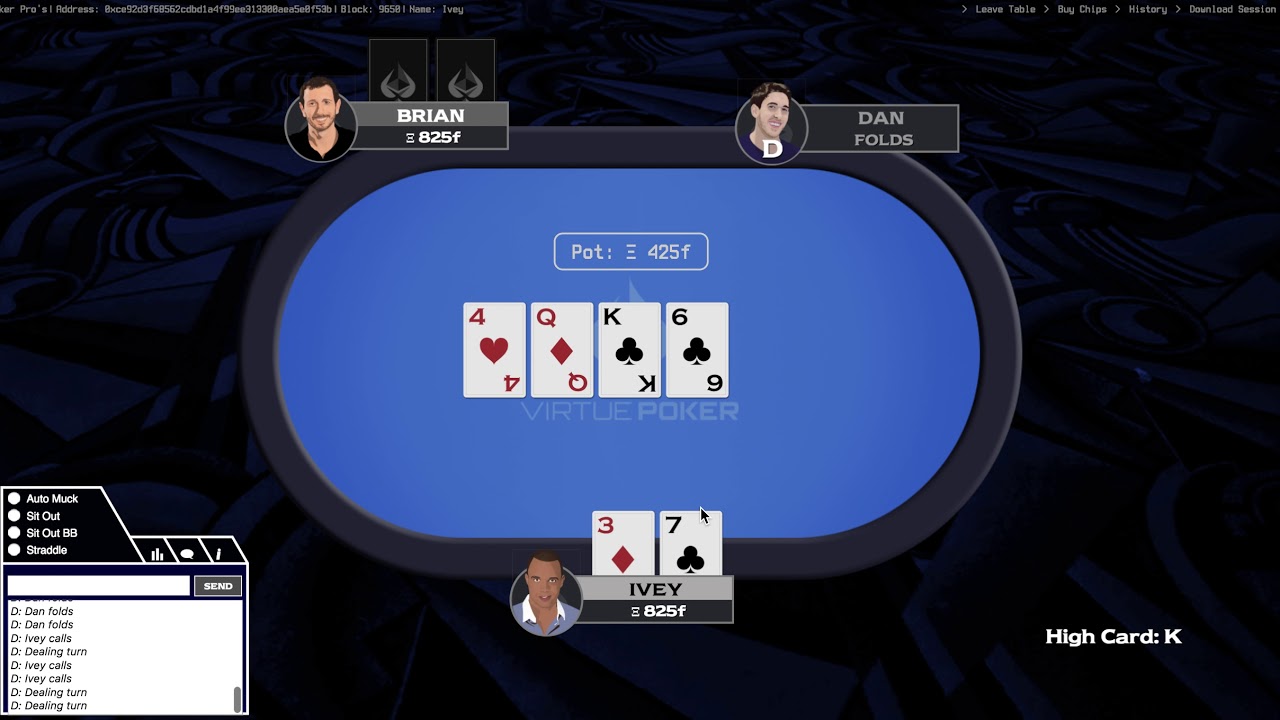Virtue Poker, the cryptocurrency gaming site backed by Phil Ivey, has reached another important milestone in its quest to make decentralized betting part of the mainstream.

The site, which is five years in the making, has chosen the FunFair Wallet as its primary payment partner. Integrating the Ethereum wallet into its platform allows Virtue Poker users to create and manage their digital storage space without leaving the site.
Virtue Poker finding ways to make crypto accessible
Virtue Poker’s full launch is set to take place before the end of May. The announcement is good news for prospective players as it will facilitate easier transactions from within the wallet. In many ways, it will make Virtue Poker feel more like a real-money gaming site.
Unlike PokerStars and other more-established sites, Virtue Poker doesn’t accept fiat currencies and, importantly, doesn’t hold player funds. Instead, customers transfer Ethereum (ETH) tokens from their crypto wallet to Virtue Poker’s sidechain. The funds are locked on the sidechain and managed by smart contracts. When someone wants to unlock their funds, they have to move them from the sidechain back to their wallet.
This system means Virtue Poker doesn’t have any control over its customer’s money. In short, token transfers are decentralized. Integrating FunFair Wallet into its decentralized app (DApp) means that transferring funds is a lot easier. Instead of leaving the site and making transfers from an external wallet, players can stay within Virtue Poker and access their FunFair wallet.
The update should help people unfamiliar with how crypto payments work (which is many) feel more comfortable. That’s important because Virtue Poker is vying to become the first truly mainstream crypto gaming site.
A novel site with familiar features
On the poker front, the company’s developers have been taking advice from Phil Ivey and Dan Coleman. These links are there to ensure that, when all is said and done, Virtue Poker offers a slick gaming experience. Underneath the skin, however, things work differently.
Virtue Poker uses a decentralized system that operates on the Ethereum network. The nuances are what make the site different, though CEO Ryan Gittleson believes that although it operates differently than more traditional online sites, Virtue Poker must still align with current gaming standards.
To that end, Virtue Poker announced in April that it has become the only blockchain-based poker application to receive a remote gaming license. The Malta Gaming Authority’s (MGA) seal of approval means Virtue Poker is now classed in the same bracket as other regulated sites such as PokerStars and Partypoker.
“By working with regulators to become a licensed online gambling company, Virtue Poker now has legitimacy to crossover and compete for customers from legacy providers to bring blockchain-based wagering mainstream,” Gittleson said in a press release.
Integrating the FunFair Wallet into its product is Virtue Poker’s next step in its journey to becoming a mainstream product that players not only trust, but understand. That may be a tall order, however, as most people only know about cryptocurrencies by their trading value.
The times are changing, however, and the technology surrounding blockchains is becoming more user-friendly. Virtue Poker’s latest update is an example of that and, potentially, another step forward both for its own business, and for the crypto gaming sector as a whole.


